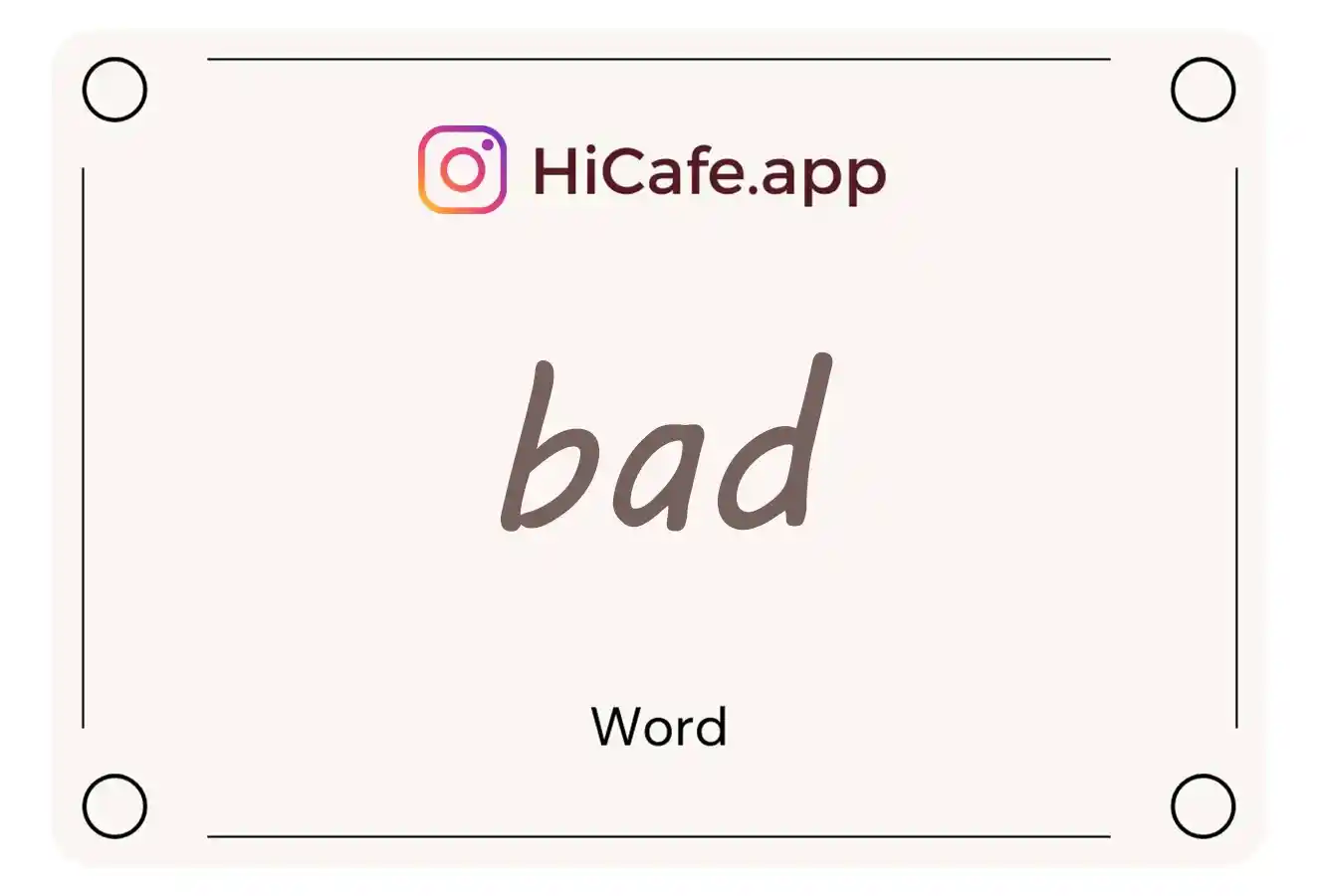Word of the Day: Bad
The word “bad” represents very basic English vocabulary. Bad is the opposite of good. Still, there are some important things to know about how this word is used because the meaning of this word might not always be clear. Take a look at these examples:
- He has a bad back. (His back is not healthy.)
- These batteries are bad. (They don’t work any more.)
- This mango is bad. (The mango is rotten.)
- I have a bad memory. (I can’t remember things.)
- This car has a bad engine. (The engine needs to be replaced.)
- Vanessa has a bad headache. (Her head really hurts.)
Of course, there are many ways to use the word “bad” to mean the opposite of good:
- That’s a bad neighborhood. (It’s not safe.)
- I’ve got some bad news.
- He’s a really bad guy.
- This is a bad situation.
- That was a bad movie.
- Maria has a bad boss. (He’s not very good at being a supervisor.)
“Bad” is an irregular adjective. The comparative form is “worse,” and the superlative form is “worst.”
- That’s a bad company to work for.
- It’s worse than any other company I can think of.
- It’s the worst company to work for.
You often hear the word “bad” when talking about a person’s behavior, especially that of a child, but “bad” is also used for adults:
- She’s being bad.
- She was bad today.
- He did something that was bad.
- He knows that what he did was bad.
- A toddler needs to learn the difference between good and bad. (toddler = two to three years of age)
Speakers of American English use “bad” or “badly” as an adverb to mean a lot or very much. The correct form is “badly,” but you still hear the word “bad” used instead:
- I need it very bad. (I need it very much, but the use of “bad” here is incorrect.)
- I need it very badly. (correct)
- She hurt me bad. (incorrect)
- She hurt me badly. (correct)
- The team played badly on the field. (correct)
- The team played bad. (incorrect)
- Medicine is badly needed by people in that area. (correct.)
- Your support is badly needed. (correct)
There are many expressions that include the word “bad.”
- Things are going from bad to worse. (A bad situation is getting worse.)
- There’s bad blood between them. (They have a history of conflict.)
- Hey, that’s not half bad. (That’s pretty good.)
- Not bad! (Good.)
- Are you trying to make me look bad? (Are you creating a comparison that hurts my image?)
- He bad-mouthed the teacher. (He said something negative about the teacher.)
- Don’t throw good money after bad. (Don’t waste your money on something that is worthless.)
- That experience left a bad taste in my mouth. (The experience was really terrible and disgusting.)
- She’s having a bad hair day. (Her hair is unmanageable and looks wild.)
- My bad! (Sorry, I made a mistake.)
Essential English Dictionary
Visit the Popular English Words Beginning with B page to see the list of all words starting with letter B. For seeing the HiCafe dictionary, visit the Popular English Words with Meaning page.



